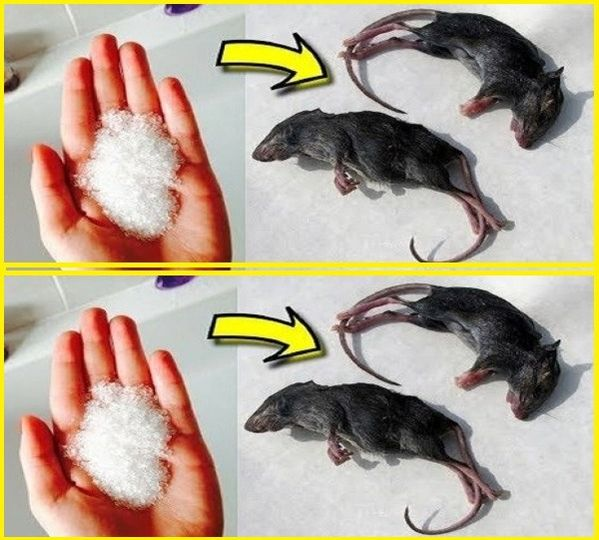ADVERTISEMENT
1. Seal Entry Points
Rodents can squeeze through surprisingly small openings—mice can fit through a hole as small as a dime!- Inspect your home for cracks, gaps, and holes in walls, doors, and foundations.
- Use steel wool, caulk, or hardware cloth to seal these gaps.
- Pay special attention to areas around pipes, vents, and utility lines.
2. Keep Food Stored Securely
Food left out is a major attraction for rodents.- Store pantry items in airtight containers made of glass or metal.
- Avoid leaving pet food out overnight.
- Keep countertops and floors clean of crumbs and food residue.
3. Maintain a Clean Environment
Rodents thrive in cluttered and dirty spaces where they can hide and build nests.- Regularly vacuum and mop floors.
- Declutter storage areas such as basements, attics, and garages.
- Dispose of garbage promptly and use sealed trash bins.
4. Eliminate Water Sources
Mice and rats need water to survive. Remove any standing water inside or outside your home.- Fix leaky faucets, pipes, and clogged drains.
- Empty water from pet bowls and plant saucers overnight.
- Ensure gutters and downspouts are clear and direct water away from your home.
5. Use Natural Deterrents
Certain scents are unpleasant to rodents and can help deter them.- Place cotton balls soaked in peppermint oil, clove oil, or eucalyptus oil near entry points or areas where rodents are likely to enter.
- Sprinkle cayenne pepper or crushed garlic around potential nesting spots.
6. Install Door Sweeps
Gaps under doors are an easy entry point for rodents.- Install door sweeps on exterior doors.
- Check garage doors and basement access points for similar vulnerabilities.
7. Regularly Inspect Your Home’s Exterior
Your home’s perimeter can provide clues to potential rodent activity.- Look for signs of chewing, droppings, or burrowing around foundations, sheds, and woodpiles.
- Trim vegetation and shrubs near the house to reduce hiding spots.
8. Keep Firewood and Debris Away from the House
Stacked firewood and debris piles are attractive nesting sites for rodents.- Store firewood at least 20 feet away from the house and elevate it off the ground.
- Dispose of yard waste promptly, including leaves and grass clippings.
9. Use Traps Strategically
Traps are a reliable method for catching rodents that have already made their way inside.- Place traps along walls, behind furniture, and near known entry points.
- Use peanut butter, cheese, or chocolate as bait.
- Check traps regularly and dispose of captured rodents promptly.
10. Employ Ultrasonic Repellents
Ultrasonic repellents emit high-frequency sounds that are uncomfortable for rodents but harmless to humans and pets.- Place these devices in areas prone to infestations, such as attics, basements, and kitchens.
- Keep in mind that ultrasonic devices work best when combined with other methods.
11. Enlist the Help of a Professional
If your rodent problem persists despite your best efforts, it’s time to call in a pest control professional.- A professional can identify hidden entry points, nests, and colonies.
- They’ll provide targeted solutions, including traps, poison, or exclusion techniques.
12. Adopt a Cat
Cats are natural predators of mice and rats.- If you’re an animal lover, adopting a cat could be a fun and effective way to keep rodents at bay.
- Keep in mind that not all cats are hunters, so this may not be a foolproof method.
Bonus Tip: Stay Vigilant
The key to keeping rodents out is consistent maintenance and vigilance. Regularly check for signs of activity and act quickly if you spot droppings, gnawed wires, or chewed food packaging.By following these 12 smart tips, you can effectively protect your home from mice and rats, ensuring a cleaner, healthier living environment for you and your family.
